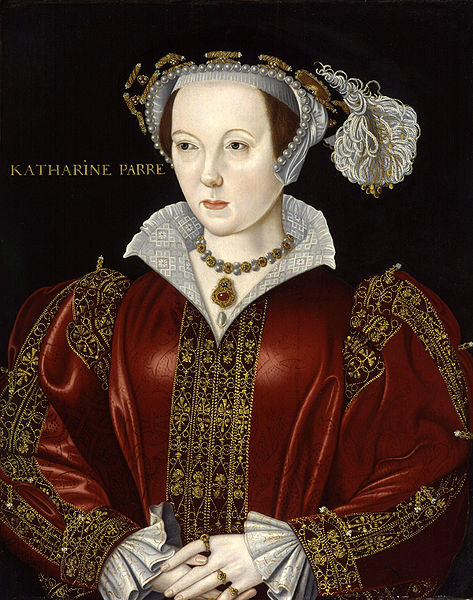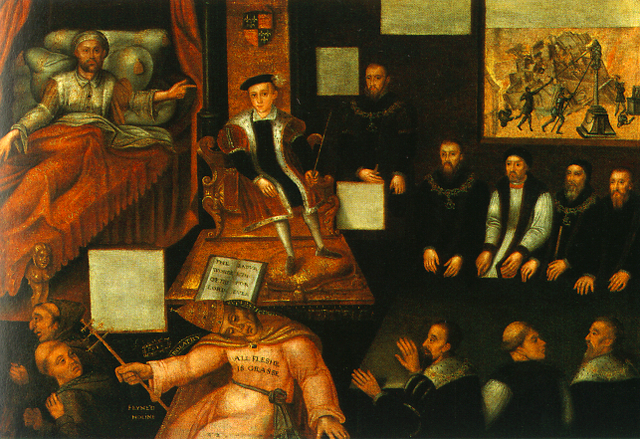Ever since Henry VIII’s death, at the age of fifty-seven, people have asked how a once splendid monarch could come to such a pass. Some historians have suggested that during the last years of the reign he was slowly sinking into ” a pustular, syphilitic mass,” degenerate of body and soul; other authorities have been content to say that sickness and decrepitude transformed him into a testy and pathetic invalid; and still others have simply recorded in one way or another the diagnosis of the French ambassador who said that Henry was “the most dangerous and cruel man in the world.”

—Henry VIII died in 1547, when Elizabeth was 13 years old, and was succeeded by her half brother, Edward VI. Catherine Parr, Henry’s last wife, soon married Thomas Seymour of Sudeley, Edward VI’s uncle and the brother of the Lord Protector, Edward Seymour, Duke of Somerset. The couple took Elizabeth into their household at Chelsea. There Elizabeth experienced an emotional crisis that historians believe affected her for the rest of her life. Seymour approaching forty but with a natural charm and “a powerful sex appeal” engaged in romps and horseplay with the fifteen-year-old Elizabeth. These included entering her bedroom in his nightgown, tickling her and slapping her on the buttocks. This state of affairs was put to a stop by Catherine Parr, after she discovered the pair in an embrace. In May 1548, Elizabeth was sent away.—click image for source…
That the King was ill of body and in constant pain is established fact; that he was moody, pestilent, and petty is undeniable; but nowhere is there real evidence of senility, mental disease, or spiritual degeneration. Instead, the prevailing image of those concluding moths is that of a calculating, egotistical and suspicious man, educated to the maxim “three may keep counsel if two be away.” Above all else, Henry was terrified of dying and equated continued life with the absolute control of those around him. No matter what the cost, the King was determined to disprove the age-old prophecy that “old men are out of date…their zeal is withered like their brows.” Even a Tudor sovereign could not expect to defy time forever, but he could hold youth in ransom by showing his ambitious courtiers that the King’s wrath was still death.

An inauthentic pose here shows the dying King aiding Protestantism and confounding the pope by naming Seymour Protector…click image for source…
Henry had ruled for thirty-seven years, and he believed explicitly that “the rod can no more be spared in schools than the sword in the hand of the prince.” As the father and schoolmaster of his people, he knew well that “all order standeth in ruling and obeying.” The will to command was the habit of a lifetime, but to succeed in eliciting absolute obedience was not easy. The aging monarch must have appreciated the warning that an old and infirm prince “may be ruled over by a new train of hungry councilors,” and the “unthankful people” will be “more inclined to a lusty king, than to an old misguided” relic.





 COMMENTS
COMMENTS